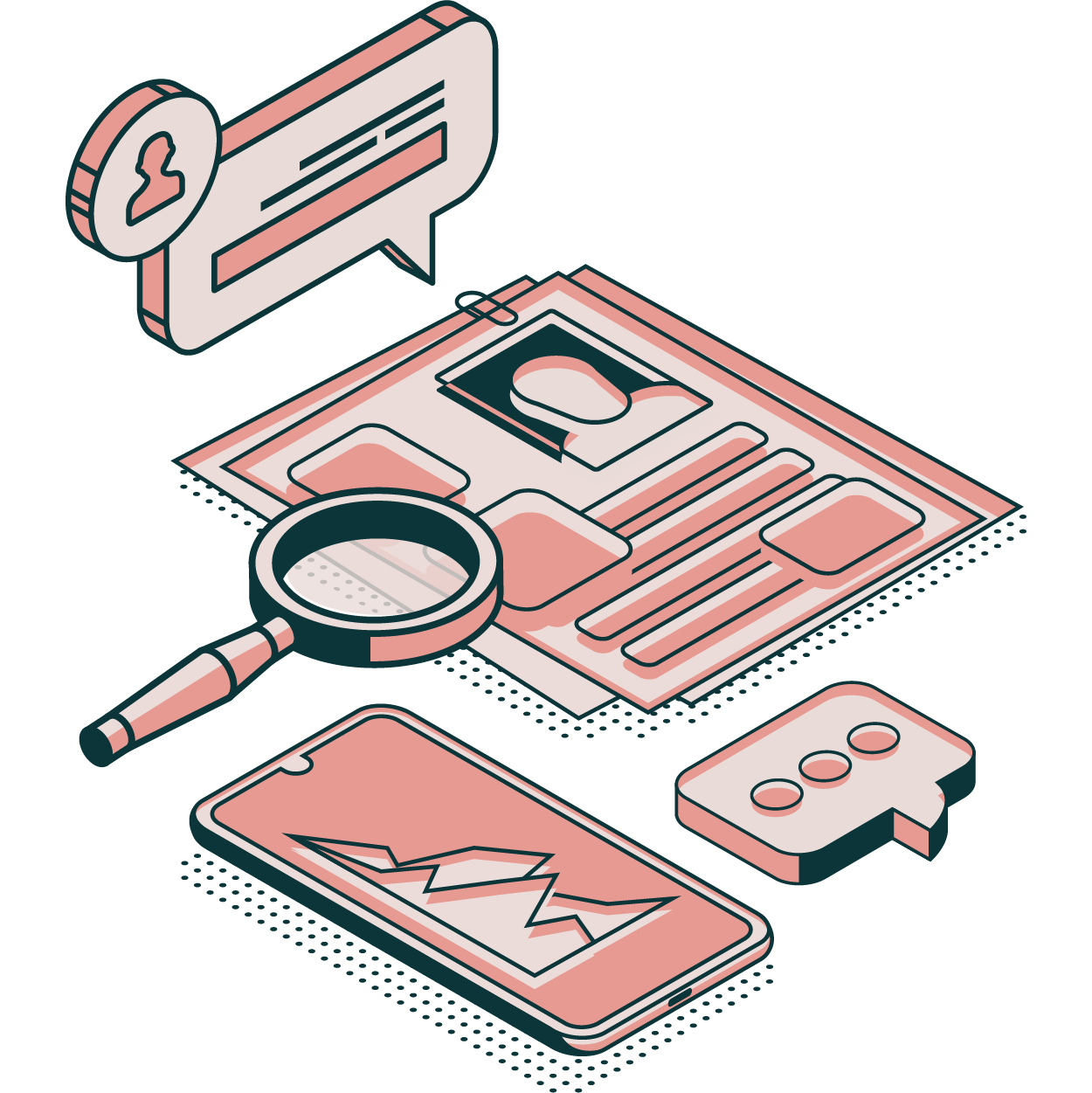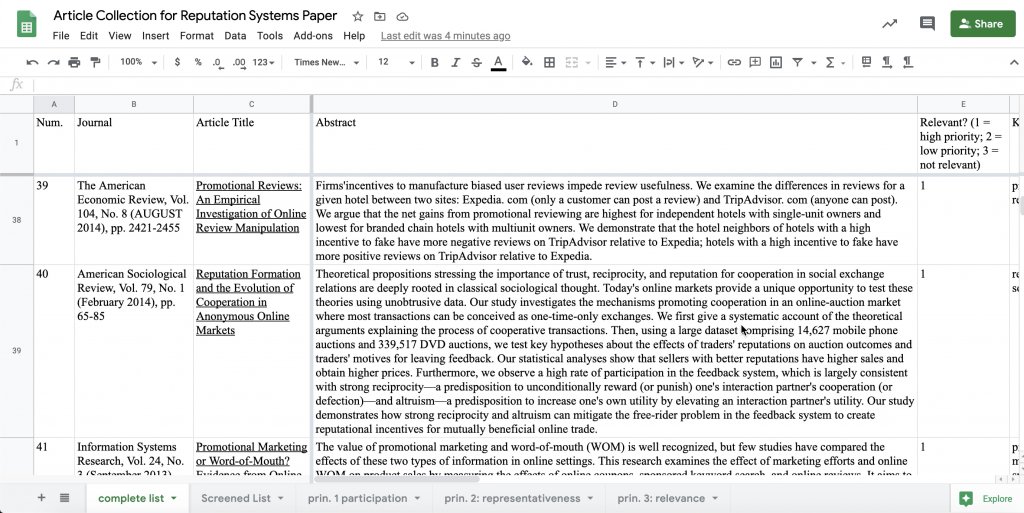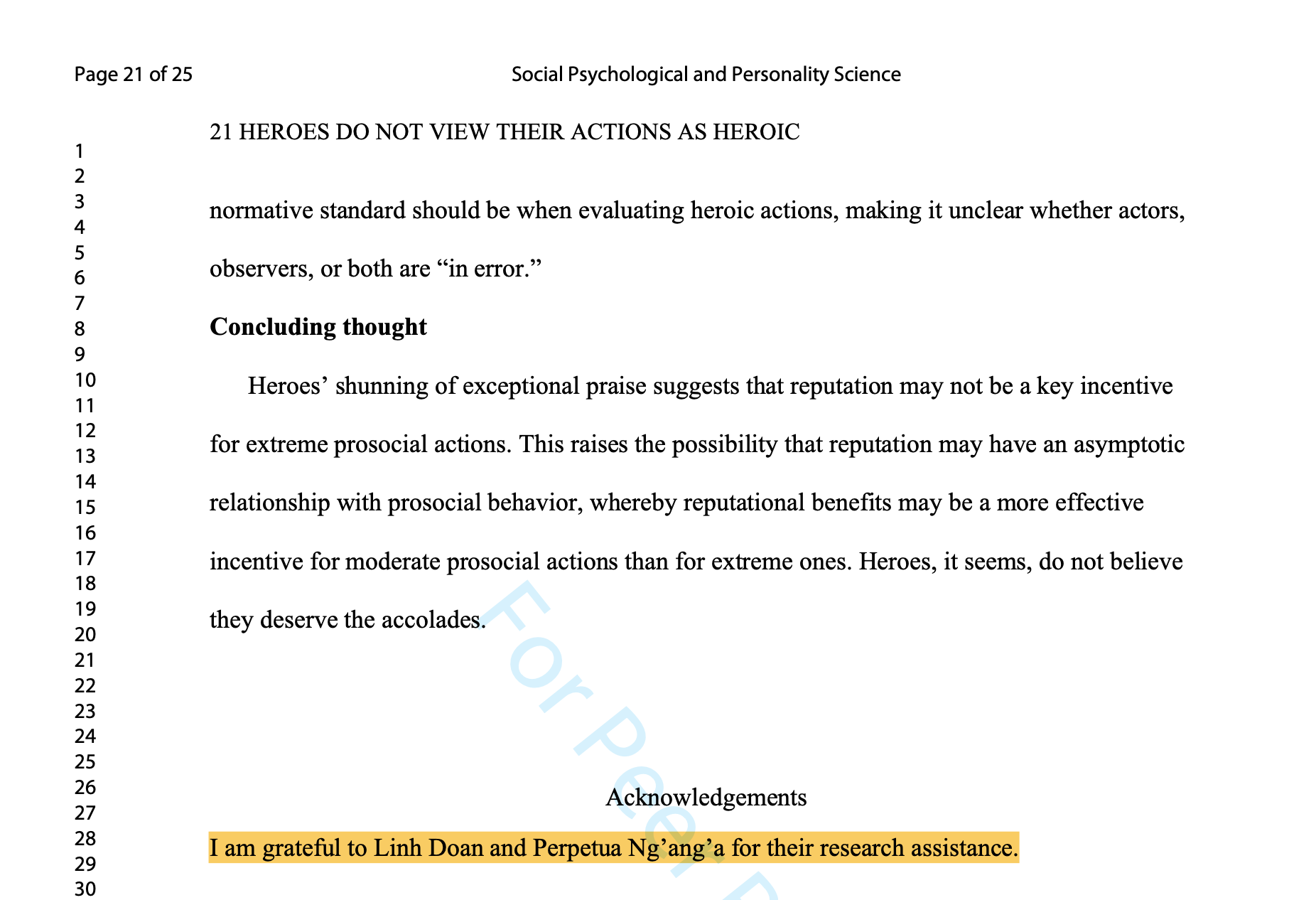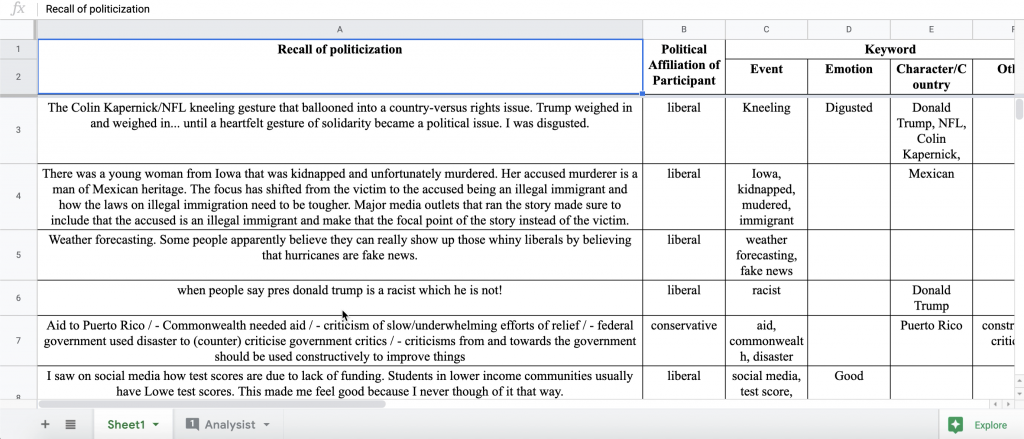Achievement

Story
I assisted Professor. Nadav Klein in various research projects related to human judgment and decision making, prosocial behavior, and reputation systems.
Recommendation

Nadav Klein
Assistant Professor at University of Chicago and Minerva Schools
“I taught Linh in two courses as part of the business major in Minerva and worked with her on research into the psychology of heroes. She is conscientious, hard-working, and motivated by the desire to use knowledge and science to helper her team and make a better world. In our research work, I was impressed by her ability to both get into the small details of projects while also maintaining a vision of the big picture, knowing how to adjust her work so that others in our team benefitted and the project as a whole moved forward. She is clearly a self-starter and can take off with a project without the need for constant instruction. She is also creative and curious, and our research benefitted from brainstorming sessions in which she made meaningful intellectual contributions. She is also cordial and pleasant to work with. I wholeheartedly recommend her as a leader and a team member.”
I. Reputation system
Hypothesis:
Reputation systems are programs or algorithms that allow users to rate each other or products/services in online communities in order to build trust through reputation (e.g Amazon, Etsy)
We hypothesize that a “perfect” reputation system must follow three principles:
- Principle 1: Participation – reputation systems must motivate people to provide feedback and evaluations
- Principle 2: Representativeness – reputation systems must feature both positive and negative feedback
- Principle 3: Relevance – Reputation systems must provide information on dimensions relevant to the goals of their users
This research aims to conduct literature reviews on different aspects of reputation systems and problems associated with them and provide a guideline for organizations to decide a “perfect” system.
Tasks:
Conducting literature reviews for more than 400 scientific papers. Identifying the patterns and principles of designing reputation systems

II. Heroism
Paper:
Klein, N. (2020). Heroes Perceive Their Own Actions as Less Heroic Than Other People Do.
Social Psychological and Personality Science. https://doi.org/10.1177/1948550619893967
Tasks:
- Brainstorming and developing hypotheses for the research
- Researching news reports and interviews in identifying the patterns in heroes’ answers.
- Designing three experiments on Qualtrics to test out three hypotheses.
- Conducting qualitative coding participants’ answers to find insights.
Summary:
Heroic acts are prosocial actions that involve extreme sacrifice and risk. Such acts receive near-ubiquitous praise. However, our research suggests that one group refrains from praising heroic acts—heroes themselves. Using self-reflection provided in news reports and experiments, we prove that heroes perceive their actions as less heroic than other people do. Being a hero is a distinctly less positive experience than observing one.
Acknowledgment:

III. Politicization
Summary:
In this research, we mainly investigate how people think about politicization: what the real definition of politicization is, what types of events usually lead to politicization, and whether the participants own side, the other side, or both were responsible for politicizing that event.
Tasks:
- Conducting qualitative coding on the participants’ surveys.
- Conducting data analysis (e.g., chi-squared test) based on the participants’ answers

IV. Perspective-taking
Paper:
Klein, N. (2019). Better to overestimate than to underestimate others’ feelings: Asymmetric cost of errors in affective perspective-taking.
Organizational Behavior and Human Decision Processes https://doi.org/10.1016/j.obhdp.2018.12.009
Tasks:
- Coding different types of emotions in social situations.
- Polishing the final paper.
Summary:
In this research, we conduct 7 experiments to find out whether underestimating emotions is costlier than overestimating.


